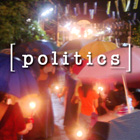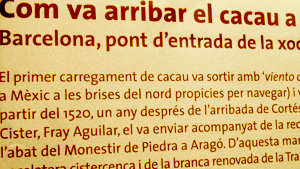
|
15 December 2005 For the 3rd time over the span of roughly 1 year, the Supreme Court of Catalunya has ruled that the Generalitat must provide bilingual instruction —the option to study in Castilian instead of Catalán— at least until the age of 8 in primary schools. The judges found that the process should be "extremely simple" and that there need only be an option to check a box on registration forms, listing the "mother tongue" of a school-child as either Castilian or Catalán, so that bilingual Catalunya could provide adequate instruction in that language. Most Catalán parents polled reportedly prefer bilingual education. 54% said they preferred a Catalán curriculum with Castilian as a required subject. Only 20% of those surveyed reportedly desired the reverse, and a mere 7% reported a desire to see Castilian as the primary language for Catalán education, with Catalán offered as an optional language subject. Critics suggest the regional government has sought to manipulate the system to underprovide Castilian instruction, with the aim of making Catalán-based education universal and mandatory, despite laws and court rulings to the contrary. Offical comments from the "tripartite" coalition are mixed, with some more moderate voices talking of pluralism and a tolerant bilingual Catalunya, and other more radical voices calling for the phasing out of Castilian, not technically possible under the Spanish constitution. El Mundo also reports that the regional government of Catalunya, the Generalitat, has been pleased with results from evaluations of the performance of the so-called "Offices for Linguistic Guarantees", set up in February. The offices process anonymous complaints filed by citizens against businesses that violate regulations requiring signage in Catalán. Conservatives and Spanish nationalists have said the Offices for Linguistic Guarantees are a form of linguistic persecution, but the Catalán government maintains they are used only to protect the rights of those use a minority language in Spain, indigenous to Catalunya, which official policy seeks to protect and promote. According to El Mundo, the 5 Offices for Linguistic Guarantees, stationed in Barcelona, Girona, Lleida, Tarragona and Tortosa, processed 928 complaints as of June 2005, and have imposed an estimated 81,250 euros in fines for not using Catalán in commercial signage. New findings evaluating the performance of the language offices suggests more locations be opened, that they be fitted with more advanced online information-sharing technology and be permitted not only to receive complaints but also to conduct analysis of language protections and to issue public reports. [s]
BACKGROUND: Spain's "Popular" party (PP) has accused the regional government of Catalunya of "investigating, inspecting and sanctioning" businesses that put signs exclusively in Castilian (the language commonly known as "Spanish", though it originates in the central Spanish region of Castile, and other regions use other languages), according to La Vanguardia newspaper. [Full Story] |
|||||||||||||
|
||||||||||||||


